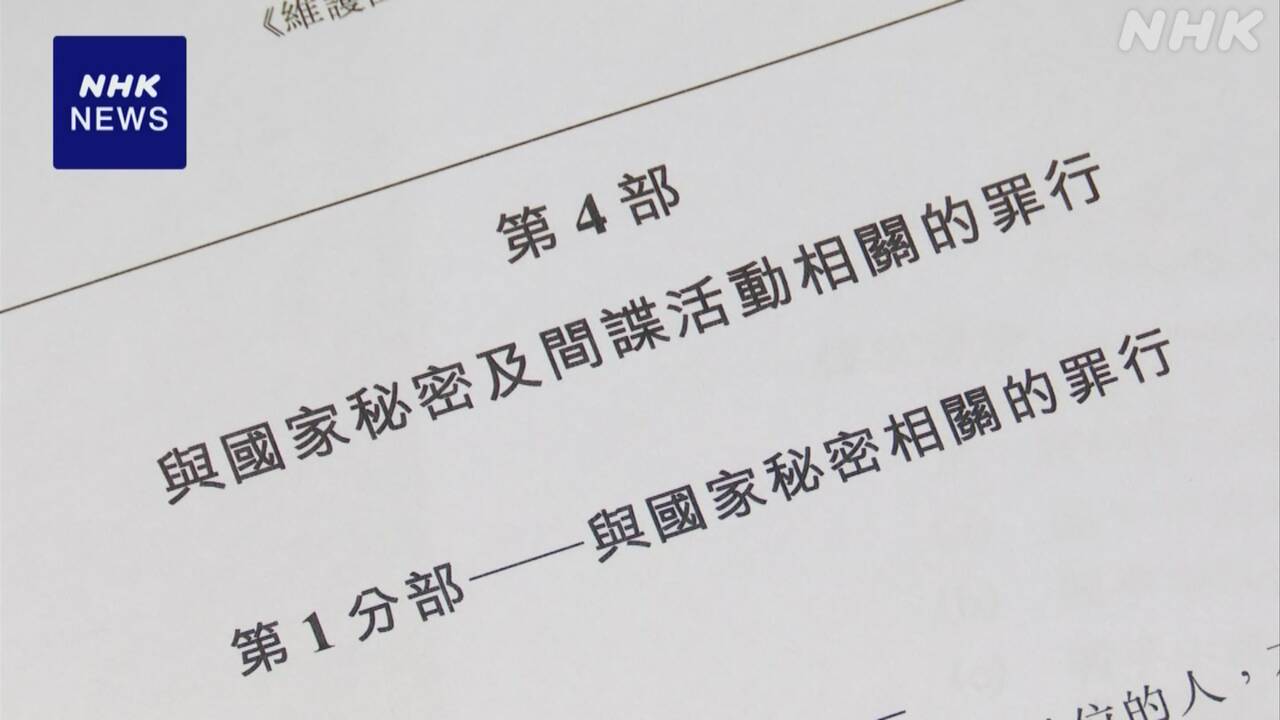In Hong Kong, the National Security Ordinance, which cracks down on acts that threaten national security such as espionage, will come into effect on the 23rd. Regarding the ordinance, it has been pointed out that the definition of criminal acts is broad and ambiguous, and there are concerns about its impact on business activities.
Hong Kong's National Security Ordinance supplements the Hong Kong National Security Law, which came into effect in 2020, and prohibits
theft of state secrets, espionage,
incitement to rebellion
, interference by foreign forces
, etc. It is a criminal offense, and violation of the law carries a maximum penalty of life imprisonment.
Hong Kong's parliament, the Legislative Council, where pro-Beijing factions almost monopolize the seats, deliberated at an unprecedented speed and unanimously passed the ordinance on March 19th.
The ordinance will come into effect on the 23rd.
Under this ordinance, anyone who illegally obtains or discloses "national secrets" will be sentenced to five to 10 years in prison, and acts in foreign countries will also be subject to crackdowns.
The scope of ``state secrets'' is wide, including ``information regarding the economy, society, and scientific and technological development of China and Hong Kong,'' and it is up to the authorities to decide what exactly is ``state secrets.'' There are concerns that information obtained in the course of business may be deemed to be state secrets.
In mainland China, where the "anti-espionage law" is in effect, there are a number of cases in which Japanese nationals are detained by the authorities for being involved in espionage. is attracting attention as to how it will be operated in Hong Kong, where different laws apply.

